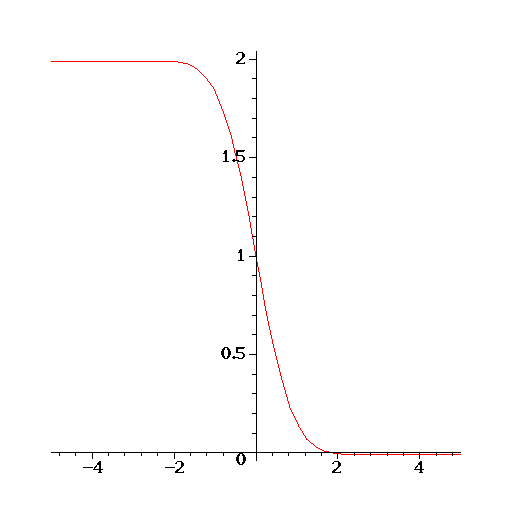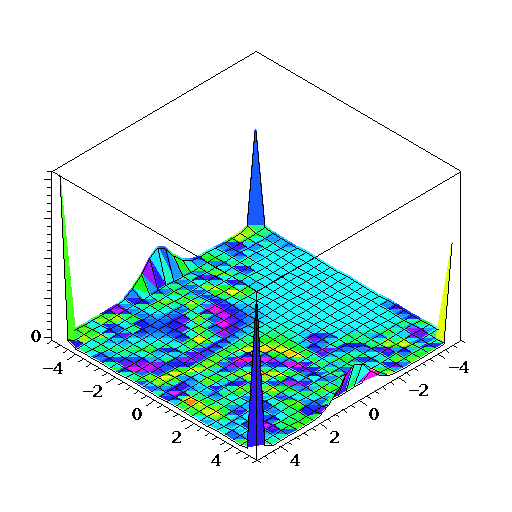ERFC Complementary Error Function
ERFC.1 Introduction |
top up back next into bottom |
Let
 be a complex variable of
be a complex variable of
 .The function Complementary Error Function (noted
.The function Complementary Error Function (noted
 ) is defined by the following second order differential equation
) is defined by the following second order differential equation
| ERFC.1.1 |
The initial conditions of ERFC.1.1 are given at
 by
by

|
ERFC.1.2 |
Related function: Error Function
ERFC.2 Series and asymptotic expansions |
top up back next into bottom |
ERFC.2.1 Taylor expansion at
|
top up back next into bottom |
ERFC.2.1.2 General form |
top up back next into bottom |

|
ERFC.2.1.2.1 |
 satisfy the recurrence
satisfy the recurrence
| ERFC.2.1.2.2 |
| ERFC.2.1.2.3 |
ERFC.2.2 Asymptotic expansion at
|
top up back next into bottom |
ERFC.2.2.2 General form |
top up back next into bottom |
ERFC.2.2.2.1 Auxiliary function

The coefficients
 of
of
 satisfy the following recurrence
satisfy the following recurrence

|

|

|











